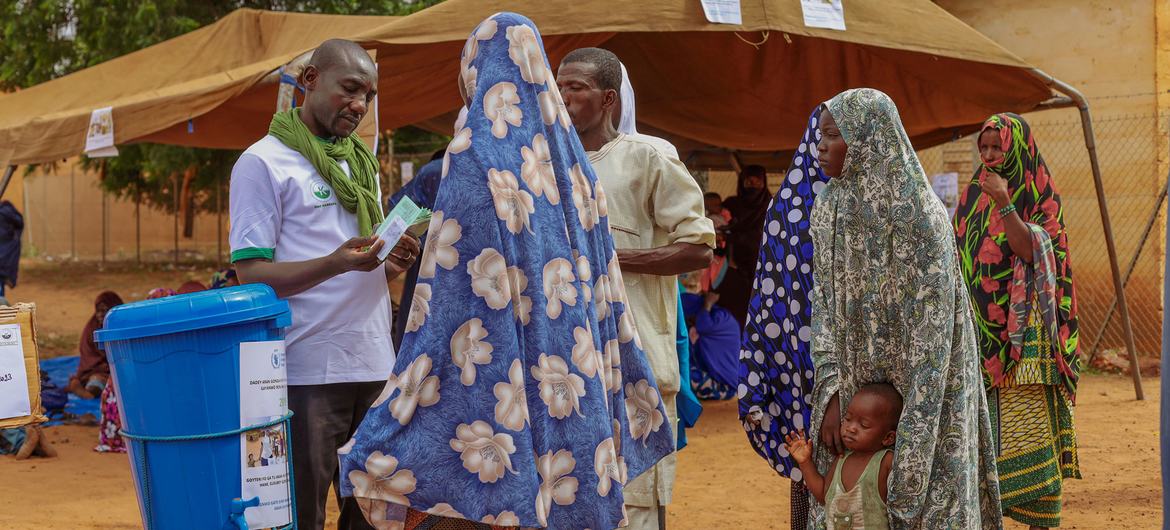(4 minutes read)
Sanctions imposed by the Economic Community of West African States (ECOWAS) and the suspension of international funding for Niger are affecting the economic prospects of one of the world’s poorest countries
Sanctions imposed by the Economic Community of West African States (ECOWAS) and the suspension of international funding for Niger are affecting the economic prospects of one of the world’s poorest countries. A military junta had taken control of the governance after toppling the democratically elected government of President Mohamed Bazoum, three months ago.
The European Union (EU), a major partner of Niger, had allocated €503 million (US$554 million) to improve governance, education and sustainable growth in Niger for the period 2021-2024, according to its website. But like other partners such as France, the EU announced that it had immediately halted budget support in the wake of the coup.
Overall, the amount of budget support provided to Niger is now estimated at 254 million dollars to be disbursed, compared with the US$1.166 billion forecast before the coup, according to a study by the World Bank (WB) and the United Nations World Food Programme (WFP).
In terms of funding for development projects, only US$82 million (0.55% of GDP) have been disbursed in 2023, compared with the significant flows expected of US$625 million (3.6% of GDP), according to the study, which indicates that this suspension will weigh heavily on the country’s ability to implement projects and execute the budget.
These figures, drawn up at the beginning of October, do not take into account the suspension by Washington of the majority of its support programs for the country, amounting to some US$500 million. Only 62% of Niger’s budget is financed by domestic revenue, according to the EU.
At the beginning of October, the military regime announced a 40% reduction in the national budget for 2023, due to the heavy sanctions imposed by international and regional organizations, which exposed the country to a significant drop in both external and internal revenue. The ECOWAS sanctions prevent Niger from accessing the regional financial market of the West African Economic and Monetary Union (WAEMU) to finance its budget and carry out banking transactions.
In response, Niger’s authorities have demanded that taxpayers pay taxes in cash, instead of depositing them in the Treasury account, which has been frozen by the sanctions. Faced with a drastic fall in revenue, the government is giving priority to paying civil servants’ salaries, to the detriment of public investment, according to the WB. It adds that the new administration has missed several interest payments, a situation that has already led to arrears and could very probably lead to the suspension” of other international financial support.
Read Also:
https://trendsnafrica.com/sanctions-on-niger-affecting-25-million-ordinary-citizens/
https://trendsnafrica.com/eu-to-impose-sanctions-on-niger-exempt-humanitarian-works/
Nigeria has announced the suspension of its electricity supply to Niger, which accounted for 71% of the country’s consumption before the coup. The Niger electricity company (Nigelec) is only managing to meet between 25% and 50% of demand. Several infrastructure projects are also threatened by the suspension of Western cooperation. The commissioning of the Gorou Banda solar power plant, financed by the French Development Agency (AFD), has been delayed. Work on the Kandadji dam, financed by AFD, the West African Development Bank (BOAD), and the Ecowas Investment Bank (EBID), has also come to a halt.
While GDP growth was expected to reach 6% in 2023, boosted by oil exports, it could fall to 2.3% if the sanctions continue until the end of the year”, according to the WB. Some 700,000 more people could fall into extreme poverty in 2023. The risk of a cash shortage has diminished, however, as money transfer agencies continue to operate in Niger despite the sanctions.





